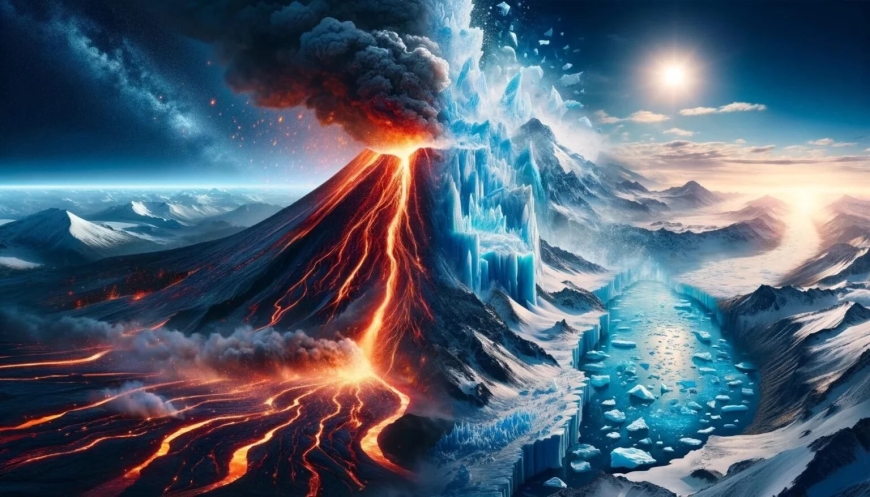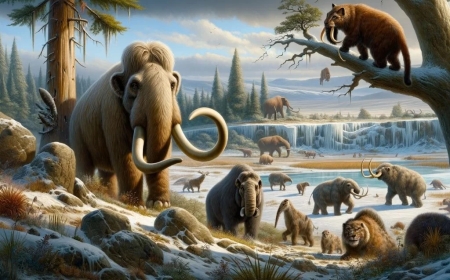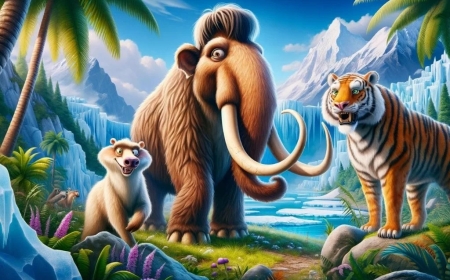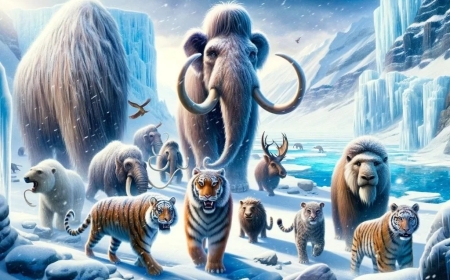Can a Volcano Cause an Ice Age?

Researchers studied the chemical makeup of an Ice Age-era ice core. Their analyses indicated that volcanic eruptions had significantly cooled Arctic regions enough to initiate multi-century cold periods known as Little Ice Ages.
Scientists don’t fully understand what causes ice ages, but evidence exists suggesting volcanoes play an integral role.
The Changing Earth’s Orbit
The Earth experiences long-term changes to its orbit known as Milankovitch cycles, which astronomers refer to. They can have significant ramifications on climate.
These changes are caused by the wobbling of Earth’s axis of rotation, its tilt with respect to the sun and variations in sunlight received across seasons at different latitudes. At one time it was thought that obliquity and precession played the most significant roles, but new research indicates changes in eccentricity may play more of a role than previously believed.
At times of high orbital eccentricity, one hemisphere receives more solar radiation in summer than the other hemisphere; as a result, one region becomes warmer while another becomes cooler. Once eccentricity decreases, however, this trend reverses itself and vice versa.
Erosion of Glaciers
Glaciers can dramatically change the landscape over time. By picking up and transporting rocks, soil, and sediment from one location to another via glacial movements, glaciers can alter landscape features such as valleys, drumlins, eskers, moraines and U-shaped valleys in ways only nature could.
Glacial erosion differs significantly from that caused by wind and water because glaciers scrape against the ground, creating an abrasion effect; furthermore, their contact also fractures rock formations underneath, known as plucking.
Glacier erosion is directly affected by temperature. Heat-trapping gases in the atmosphere, like carbon dioxide (CO2), warm the Earth and melt glaciers – one reason we are currently in an ice age. As CO2 levels continue to rise, glaciers will recede at an ever increasing rate, having an enormously detrimental impact on global climate including ocean circulation, wind patterns and local weather variations.
The Changing Pressure on Volcanoes
Glaciers and volcanoes are in an epic power struggle. When one erupts beneath a glacier, it can cause it to collapse entirely, creating devastating floods of water. Conversely, when magma builds pressure within it that cannot be contained anymore it may burst forth and explode, sending toxic fumes and lava spewing forth onto the landscape.
Scientists speculate that volcanic eruptions in Antarctica around 18,000 years ago may have hastened the end of the last Ice Age by creating an opening in the ozone layer, allowing sunlight to more directly reach Earth’s surface.
Researchers have also made an important discovery: erosion can increase volcanic activity alongside melting ice caps. A new study discovered that erosion depressed the pressure beneath a volcano and made it more likely to explode, something previously underestimated in previous research studies. This discovery highlights just one factor contributing to increase volcanic activity: erosion.
The Changing Temperature of the Earth
Over millions of years, Earth has oscillated between glacial periods (ice ages) and interglacial times, such as our own. At each transition period between two types of periodization, volcanic activity increases significantly while erosion speed up and pressure on volcanoes decreases.
Volcanic eruptions can help cool the climate by emitting gases that absorb and reflect sunlight, providing temporary relief to our weather conditions. Depending on the size of particles ejected from an eruption, this cooling effect could last for years.
Researchers have traced the beginnings of the centuries-long “Little Ice Age” back to volcanic eruptions. By using chemical clues found in Arctic vegetation and other sources, they narrowed down its start date to roughly the final decades of 13th century.
But it remains unknown exactly how severe such an eruption would be; estimates range from mild cooling effects to the potential emergence of an actual ice age.
What's Your Reaction?






































